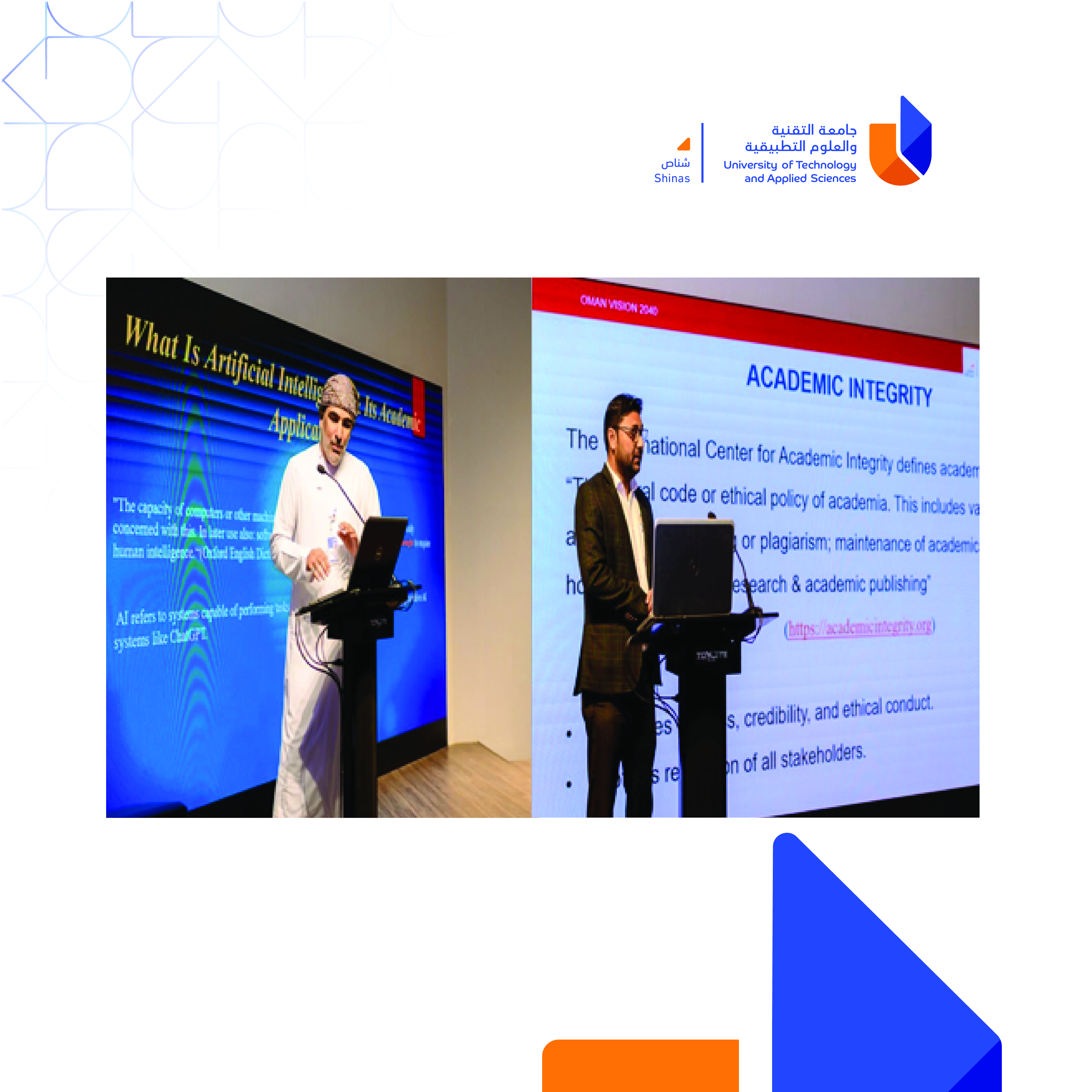UTAS Shinas Hosts Academic Integrity Training for Faculty Shinas, Oman – September 9, 2025

The Staff Professional Development Committee (SPDC) of the University of Technology and Applied Sciences (UTAS), Shinas, successfully conducted a professional development session on Academic Integrity on Tuesday, September 9, 2025. Held from 12:00 PM to 2:00 PM in the Theatre Room of the Engineering Building, the event brought together 35 academic staff members from across departments, reinforcing the university’s commitment to upholding ethical standards in teaching, learning, and research.
The session was coordinated under the leadership of Dr. Mohamed Zaheeruddin and Dr. Khudaija Sultana, SPDC members who continue to champion faculty empowerment through targeted training programs.
The session featured two eminent speakers: Dr. Mohammed Al Balushi, an expert in higher education ethics, and Mr. Noorul Hassan, an experienced academic professional specializing in student engagement and quality assurance.
Dr. Al Balushi highlighted the global and local dimensions of academic integrity, emphasizing its role as the cornerstone of higher education. He cautioned against the risks of academic misconduct—plagiarism, data falsification, and unauthorized collaboration—and stressed their long-term impact on institutions and society.
Adding a practical perspective, Mr. Hassan shared strategies to promote integrity in classrooms and research, including best practices for assessment design, effective use of plagiarism detection tools, and fostering students’ originality and critical thinking. He also underscored the importance of faculty role modeling, noting that ethical conduct by educators directly influences student behavior.
Beyond lectures, the session encouraged interactive discussions. Faculty participants raised concerns about challenges in maintaining integrity amid digitalization and the rise of AI tools. The speakers responded with practical solutions, stressing the importance of clear policies, transparent communication, and continuous awareness campaigns.
Faculty also exchanged classroom experiences, from managing group assignments to tackling subtle forms of plagiarism. The discussions ensured the training remained relevant and action-oriented.
The SPDC emphasized that this initiative aligns with UTAS Shinas’s vision of producing graduates who are not only professionally competent but also uphold strong ethical values.
In her closing remarks, Dr. Khudaija Sultana noted that academic integrity is a continuous practice requiring collective responsibility. Dr. Mohamed Zaheeruddin extended his gratitude to the speakers and affirmed SPDC’s commitment to organizing further professional development programs that keep faculty updated with contemporary practices in higher education.
The session left a lasting impact, with many faculty members expressing enthusiasm to apply the insights in their teaching and assessment methods. By fostering originality, fairness, and accountability, UTAS Shinas continues to reaffirm its commitment to academic excellence and ethical responsibility, shaping a future-ready workforce for Oman.
191